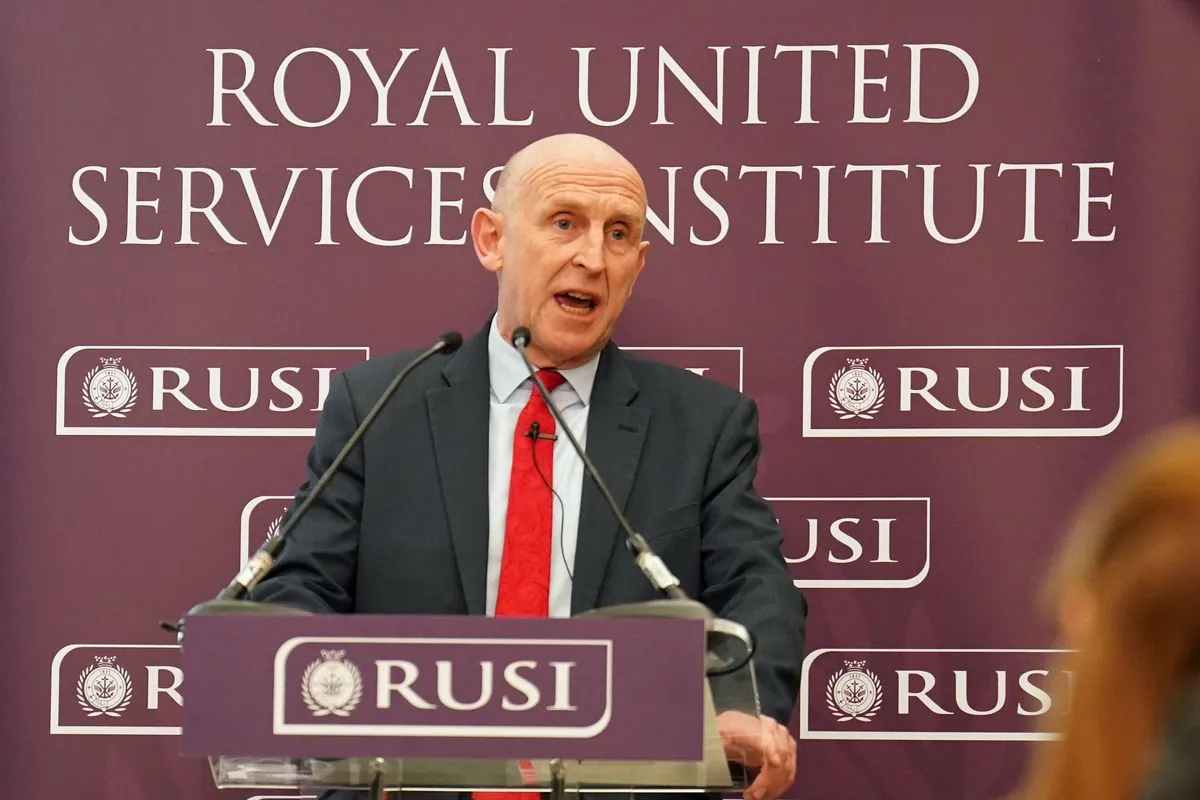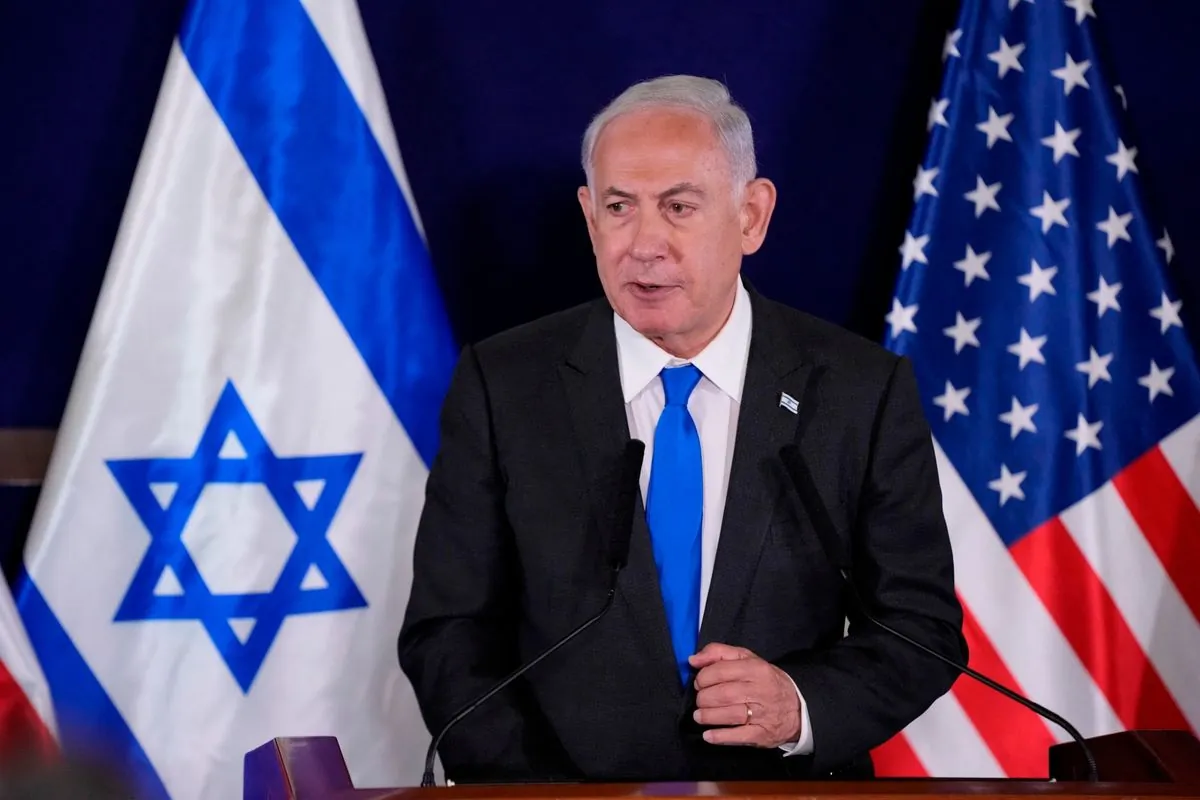UK Defends Partial Arms Embargo on Israel Amid Ongoing Gaza Conflict
British government restricts some arms sales to Israel, citing humanitarian concerns. Decision sparks debate among allies and critics, while conflict in Gaza continues with rising casualties.

The United Kingdom has recently implemented a partial restriction on arms sales to Israel, sparking a heated debate among allies and critics. This decision, announced on April 16, 2024, comes as the conflict in Gaza continues to escalate, with casualties mounting on both sides.
John Healey, the British Defense Secretary, defended the government's decision to suspend 30 out of 250 arms export licenses to Israel. He emphasized that this action was taken due to concerns about potential violations of international humanitarian law in Gaza. The UK has been a significant arms exporter to Israel since the 1960s, making this decision particularly noteworthy.
"We've made this legal judgment as a result of the process we're required to follow."
Healey reassured that the UK remains a "staunch ally" of Israel, highlighting the country's commitment to collective defense if Israel faces direct attacks. This stance reflects the UK's long-standing relationship with Israel and its role as a founding member of NATO since 1949.
However, the decision has faced criticism from various quarters. Benjamin Netanyahu, the Israeli Prime Minister, called the announcement "shameful," pointing out that five British citizens are still being held hostage in Gaza. This hostage situation is set to be discussed at the UN Security Council on April 17, 2024, marking the first official discussion on the matter since the conflict began.

The debate extends to the scope of the restrictions, particularly regarding components for F-35 fighter jets. The F-35 program, a multinational effort involving nine countries, has been exempted from the embargo. Healey explained that distinguishing components specifically for Israeli jets is challenging due to the global supply chain.
Humanitarian organizations like Oxfam and Amnesty International have criticized the restrictions as insufficient. They argue that the continued supply of F-35 components contradicts the UK's obligations under international law. This debate highlights the complex interplay between arms control, international relations, and humanitarian concerns.
Meanwhile, the situation in the region remains dire. In the West Bank, which has been under Israeli occupation since 1967, violence continues. A recent Israeli raid in Tulkarm resulted in the death of a 17-year-old Palestinian and injuries to several others. The Palestinian Health Ministry reports that 30 Palestinians have been killed and about 130 wounded in the West Bank since last Wednesday.
In Gaza, where a blockade has been in place since 2007, a polio vaccination campaign is underway. This effort aims to immunize over 600,000 children after the disease was detected in the enclave for the first time in 25 years. The United Nations Relief and Works Agency (UNRWA), which has been operating in Gaza since 1949, continues to play a crucial role in providing humanitarian assistance.
The conflict has taken a devastating toll. According to the Gaza Health Ministry, at least 40,819 people have been killed and 94,291 injured in Gaza since the war started. Israel estimates that about 1,200 people were killed in Hamas's attack on October 7, 2023, with 340 soldiers killed since the start of military operations in Gaza.
As the international community grapples with the ongoing crisis, the UK's decision to partially restrict arms sales to Israel represents a significant development in the complex geopolitical landscape of the Middle East. The move underscores the challenges of balancing strategic alliances, humanitarian concerns, and international law in an increasingly volatile region.


































